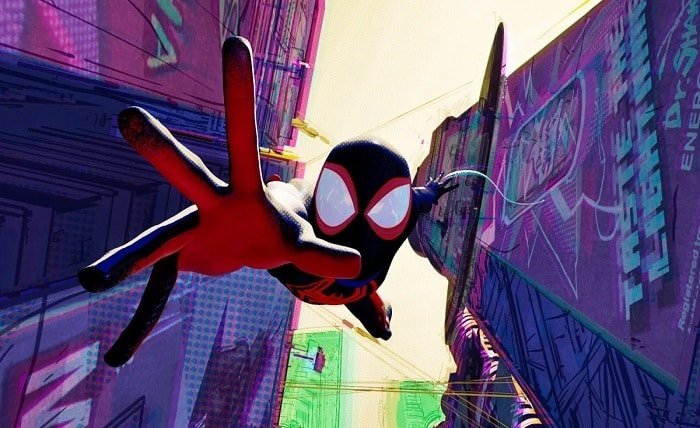What is a Canon Event? its Impact on Storytelling and Character Development

A “canon event” refers to a pivotal moment in a narrative that is considered official and integral to a story’s timeline or character development. It is often regarded as an essential part of the story’s continuity, meaning it cannot be altered, ignored, or erased within the canon of the work. The concept of canon events plays a significant role in various forms of storytelling, such as comics, movies, television series, and literature. A canon event typically shapes the trajectory of the plot and the evolution of characters in a way that aligns with the core themes of the story.
The Origin of the Term “Canon Event”
The term “canon event” traces its roots to the world of comic books and fan communities, particularly within comic book universes like Marvel and DC. In this context, “canon” refers to the official continuity of events within a given fictional universe. Over time, the term expanded beyond comics to include broader storytelling mediums. A canon event is any plot point that is officially recognized within the main narrative, establishing it as a non-negotiable moment that influences the characters or world in which the story unfolds.
Canon Events in the Marvel Universe
The Marvel Cinematic Universe (MCU) provides an excellent example of canon events that drive the entire continuity of the films. In the MCU, certain moments are considered canon because they define key aspects of characters or plot developments. For example, the death of Tony Stark in Avengers: Endgame is a canon event because it significantly impacts the narrative and other characters, shaping future story arcs. These events are not only important for the plot, but they also serve as touchstones for future movies, creating continuity across the MCU.
The Significance of Canon Events in Character Development
A canon event is often a critical moment for character development. These events can mark a turning point in a character’s journey, forcing them to evolve or face a moral dilemma. In superhero comics, for instance, the loss of a loved one is often a canon event that motivates a hero to take action. Peter Parker’s Uncle Ben’s death in Spider-Man is a prime example of a canon event that shapes Spider-Man’s sense of responsibility. These events help to define who the character is and where their motivations lie, serving as key moments that shape their personality.
Canon Events in Different Genres of Storytelling
The concept of a canon event isn’t confined to superhero stories; it extends to multiple genres, from fantasy to science fiction, drama, and more. In Game of Thrones, for instance, the Red Wedding stands as a major canon event that alters the entire course of the story. In Harry Potter, the death of key characters such as Cedric Diggory or the battle at Hogwarts serves as crucial canon moments that dramatically shift the tone and direction of the series. Regardless of the genre, these moments act as fundamental milestones that resonate throughout the story and influence its characters.
How Canon Events Shape the Narrative Structure
A canon event often functions as a narrative anchor, determining the course of the plot and influencing how other events unfold. Writers use these key moments to establish stakes and consequences that are felt throughout the story. For example, in The Hunger Games, the canon event of Katniss volunteering to take her sister’s place in the games sets the stage for her role as a reluctant hero. Without this moment, the narrative would lack the emotional weight and direction that propels the rest of the series. Canon events allow the plot to develop in a focused and intentional way.
Canon Events and the Role of Time Travel
In stories involving time travel, canon events often play an even more crucial role. They establish moments that are fixed in time, regardless of changes made in the timeline. A great example is Spider-Man: Across the Spider-Verse, where various Spider-People across different universes experience similar canon events. These shared experiences, like the loss of a mentor or the death of a loved one, are central to the development of the character, regardless of the universe they belong to. Even when time travel or alternate realities come into play, these events remain significant and unchangeable within the story’s continuity.
Canon Events and Alternate Realities
The introduction of alternate realities or parallel universes in storytelling complicates the idea of canon events. In such narratives, characters might experience similar events but with slight differences, creating alternate versions of a canon event. However, what makes an event “canon” in any given reality is its importance to that version of the storyline. For example, in The Flash, Barry Allen’s decision to change the past creates multiple timelines, yet certain events—like the murder of his mother—remain significant across the different realities. Even in these alternate worlds, some canon events still hold weight.
The Emotional Impact of Canon Events on Audiences
Canon events often evoke strong emotional responses from audiences. They are designed to resonate deeply with viewers, readers, or players by highlighting significant moments of change. These events allow the audience to connect with the characters on a more personal level. For example, the death of beloved characters in major franchise films or books often leaves a lasting emotional imprint on fans. A canon event can change the mood of a story, create a shift in perspective, or prompt viewers to rethink a character’s arc. It’s a way of ensuring that the audience is invested in the unfolding journey.
How Canon Events Influence Future Storytelling
Once a canon event takes place, it often sets the stage for future storylines and character arcs. Writers and creators build upon these events to explore the consequences and outcomes in subsequent installments of the story. For instance, after a tragic canon event like the death of a loved one, the story may focus on how the characters cope with the aftermath, creating further opportunities for growth and development. These events also impact how other characters interact with the central figure, leading to new alliances, rivalries, and conflicts that shape future narratives.
Conclusion
In conclusion, understanding what a canon event is helps us appreciate its critical role in shaping both the plot and characters within a narrative. These moments are more than just plot points; they are the heart of a story, providing direction and emotional depth. Whether it’s a superhero story, a fantasy epic, or a historical drama, canon events create lasting impact and influence the ongoing journey of characters. They are essential to maintaining continuity, engaging audiences, and ensuring that stories resonate for generations to come.
FAQs
- What is a “canon event”?
A canon event is a significant, official event in a narrative that is considered an unalterable part of the story’s continuity. - Can a canon event be changed or erased in future installments?
Generally, no. Canon events are integral to the continuity of the story and are not altered, even in the presence of time travel or alternate realities. - Do all stories have canon events?
Most stories, especially those in large franchises, contain canon events that help shape the overall narrative. These events are often crucial for character development and plot progression. - How do canon events affect character development?
Canon events often serve as turning points in a character’s journey, leading to important changes in their motivations, personality, and future actions. - Are canon events always emotional?
While not all canon events are emotional, many are designed to elicit a strong emotional response from the audience, enhancing the impact of the story.



